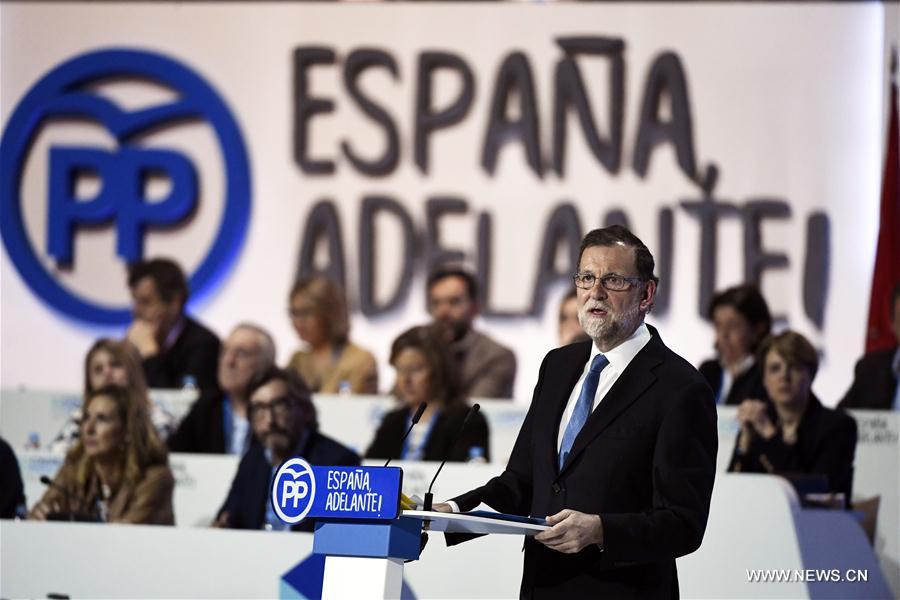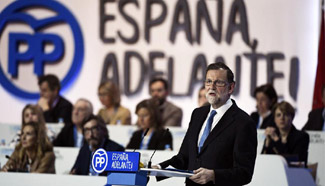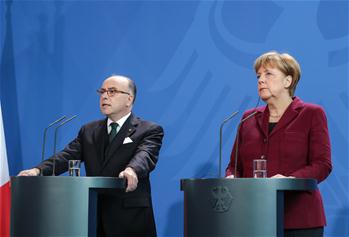
Spanish Prime Minister and leader of Spain's ruling People's Party (PP) Mariano Rajoy speaks during the XVIII Congress of the PP in Madrid, Spain, Feb. 11, 2017. Spain's PP, which held its XVIII Congress on Feb. 10-12, agreed on Sunday to consult experts over the creation of the position of party ombudsman in an attempt to raise its credibility in the fight against corruption. (Xinhua/Eduardo)
MADRID, Feb. 12 (Xinhua) -- Spain's ruling People's Party (PP), which held its XVIII Congress on Feb. 10-12, agreed on Sunday to consult experts over the creation of the position of party ombudsman in an attempt to raise its credibility in the fight against corruption.
The decision was taken just four days after nine businessmen in the ongoing "Gurtel" cash-for-favors trial, admitted paying illegal commissions to the PP, whose former Treasurer Luis Barcenas is accused of running a system of parallel accounts to hide money taken in illegal commissions.
Barcenas is one of those facing charges in the "Gurtel" trial. It is one of several high-profile corruption cases which have damaged the credibility of the party led by Mariano Rajoy.
Once created, the office will control tax declarations, economic activity, patrimony, interests and management of the party's public officials, with the aim of discovering any corrupt practices.
In this way, the PP hopes it will be able to recover public confidence and continue with its internal reform through self-control and the opening up of confidential channels to denounce corrupt practices.
As part of this process, the PP also proposes toughening the requirements for becoming a candidate at elections and to introduce an "early warning" system to prevent conflicts of interest.
They aim to do this though the introduction of a "suitability test" through investigation of tax returns and patrimony, as well as a sworn statement from any prospective candidate so that they are allowed to hold public office and have no conflict of interest.
The party ombudsman will check all data to ensure that no rules are broken while members of the office will not be allowed to hold any public position, while those in public management positions will be required to explain their actions in front of party members at least once a year.
Finally, should any PP member be required to appear in court to answer corruption charges, they would automatically be relieved of their post and the party would open an internal investigation.











